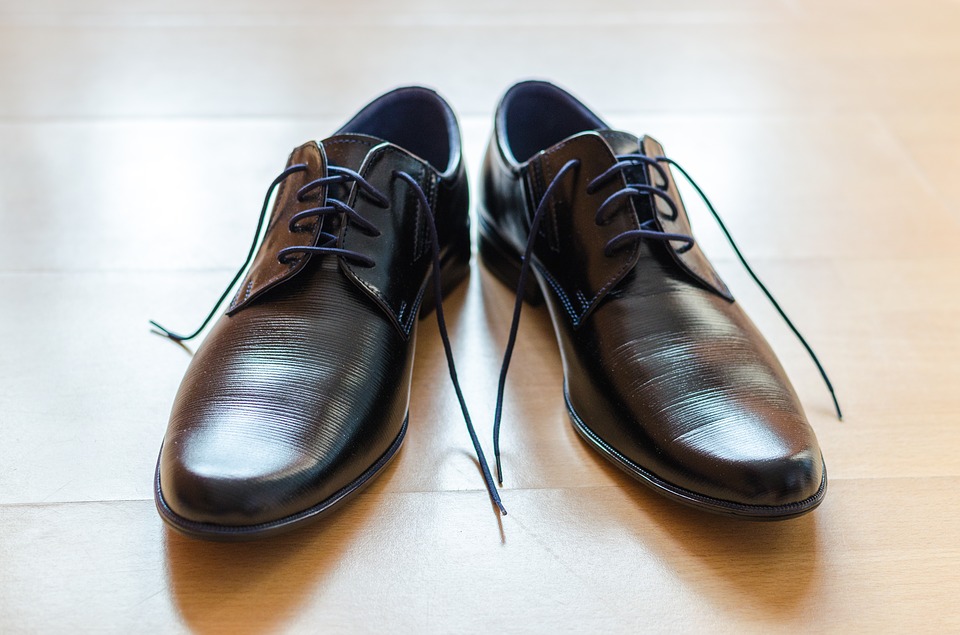Les Petites Noires Chaussures? Ou Les Petites Chaussures Noires? (Adjective Placement in French) Posted by Elizabeth Schmermund on Dec 5, 2016 in Grammar
So, which one is right? Les petites noires chaussures? Or … les petites chaussures noires?
Believe it or not, there are rules governing proper adjective placement in English, too, although we are not typically aware of them. Native English speakers typically can “feel out” whether something is correct or not by how it sounds. This is why you might not be able to say exactly why the sentence “I bought a large round table” sounds correct, while the sentence “I bought a round large table” sounds wrong. (Simply: adjectives of dimension precede adjectives denoting in English.)
This is why it can be hard for a non-native French speaker to know the correct order of adjectives. While a certain order might just sound “off” to a native French speaker, it might be more difficult for non-native speakers to judge this. So here are some handy-dandy rules to help you construct a perfectly ordered French sentence using adjectives:
Most adjectives come after the noun they are modifying in French. However there are certain adjectives that should come before the noun. A good way of remembering these adjectives is through the acronym BAGS (Beauty, Age, Goodness, or Size). Adjectives that fall into these four categories should go before the noun, while adjectives that do not fit into these categories should be placed after the noun.
So let’s take a look at our example above. This sentence uses two adjectives (petites and noires) to describe the noun (chaussures). Petites means “small” in the feminine plural and thus fits into the category of size. We can then identify that petites should precede the noun (chaussures). The second adjective, noires, means “black” in the feminine plural. It does not fit into the category of beauty, age, goodness, or size. Rather, noire is a description of color. This means that noires should follow the noun (chaussures).
Thus, the correct word order would be: les petites chaussures noires.
Did you get it right?
As always, there are a few exceptions to the rule. Méchant (mean), âgé (old), and laid (ugly), although they fit into the categories of, respectively, goodness, age, and beauty, should ALWAYS follow the noun. Thus, you would say: c’est une personne âgée and never c’est une âgée personne. (It just doesn’t sound right!)
Now, to make this even trickier, there are some adjectives in French that actually change meaning depending on whether they precede or follow a noun. We’ll be going over these next week.
In the meantime, can you construct sentences from the following nouns and adjectives in the correct order?
maison, veille, grise
vin, bon, rouge
animaux, pauvres, petits

Build vocabulary, practice pronunciation, and more with Transparent Language Online. Available anytime, anywhere, on any device.




Comments:
Paul:
At school, I was taught a mnemonic poem I’ve never forgotten for adjectives that precede the noun:
joli, bon, beau
petit, grand, gros
jeune, vieux, long, nouveau
pauvre, autre, haut
It’s also worth pointing out that sometimes (particularly in written French) an adjective you would expect to come after the noun actually precedes it. When this happens, it is because it is conveying that it is the speaker’s subjective opinion being expressed, not an ‘objective’ description. (E.g, c’est une charmante femme – means the speaker is emphasising that he/she finds her charming).
There are some adjectives that also change meaning depending on whether they are before or after the noun like ‘ancien’.
Elizabeth Schmermund:
@Paul Exactly, thank you Paul! Your point about subjective opinion and adjective placement is especially important. I’m hoping to write about those tricky adjectives that change meaning this week.
sunshine:
Ce sont de petits animaux pauvres just does not work for my French ear
Ce sont de pauvres petits animaux.
What happens to the rule in this case. Like you said there are a !ot of exceptions and I keep telling my students that they just have to keep on practicing and reading. It is already wonderful that they have gotten this far!
Elizabeth Schmermund:
@sunshine Yes, sunshine. That example was the tricky one. You are correct, although the rule doesn’t apply in this case. The exceptions are always the trickiest part. But you sound like a great and encouraging professor.
Beatriz:
merci beaucoup , j’apprends beaucoup du blog,
Richard:
1. ) La vieille maison grise.
2.) Le bon vin rouge.
3.) I’ll defer to “sunshine” in the comment above. 🙂
Bill Cunningham:
Very interesting indeed.